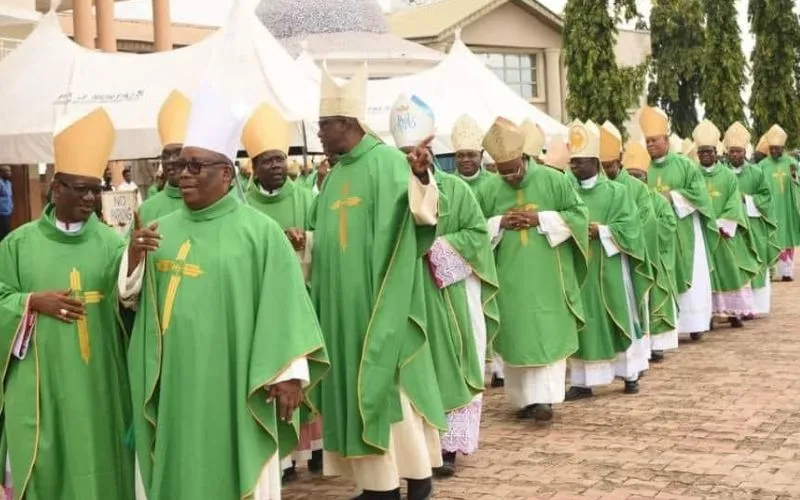The Bishops outline several penal measures applicable in cases where priests engage in partisan politics.
According to the CBCN members, “A cleric who is culpable of violating the prohibitions established by Canon 285 §3 and Canon 287 §2, notwithstanding the appeals and two canonical warnings of his proper Ordinary (cf. Canon 1339 §1), and who has given no sign of reform, must be suspended from every exercise of the power of orders and of governance (cf. Canon 1333) for an appropriate period.”
This suspension, the Catholic Bishops in Nigeria say, includes the possibility of being subjected to further canonical sanctions, such as the requirement to “reside in a designated place or territory” as per the Canon law.
The Bishops further clarify that the situation escalates if a Priest persists in disobedience. “If the cleric persists, he also incurs the delict of disobedience to ecclesiastical authority according to the norm of Canon 1371 §1,” CBCN members warn.
In such cases, they say, the Bishop has the authority to request the Dicastery for Evangelisation to apply the ultimate penalty, ‘dismissal in poenam’ from the clerical state, a decision they say is made possible by “the faculties” that the Holy Father grants.
In the statement, the CBCN members remind the Religious that the rules apply to them as well.
“It is important to note that, in accordance with Canon 672, the prohibitions established in Canon 285 §3 and Canon 287 §2 apply equally to Religious," the Catholic Bishops in Africa's most populous nation say in the October 1 statement.
The Bishops urge Major Superiors of Religious Institutes in the West African nation to “take note of these canonical provisions and ensure their diligent application within their respective jurisdictions.”
The Bishops reiterate the Church's firm stance against members of the Clergy engaging in partisan politics or holding public office without proper ecclesiastical authorization, calling it “a matter of utmost gravity.”
They urge all Priests and Religious to adhere strictly to these canonical laws and to fulfill their “sacred duties with fidelity and devotion.”








